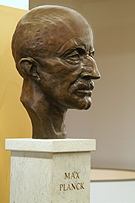
Sprecher:
Stefan Hollands
Koordinator:
Jörg Lehnert
Addresse:
Inselstraße 22
04103 Leipzig
Deutschland
Kontakt:![]() +49(0)341-9959-641
+49(0)341-9959-641![]() +49(0)341-9959-658
+49(0)341-9959-658![]() IMPRS
IMPRS

Research
The mission: "Outward-Looking Maths"
In our IMPRS, we educate highly talented researchers that look outward to new horizons in mathematics and the sciences: By "outward-looking maths" , we mean research not driven entirely by considerations internal to a specific area of mathematics, but driven by and driving developments, ways of thinking, models, ideas, questions, and concepts in many fields of science, attempting to recognize mathematical structures of the world around us.
This vision of the inherent unity of mathematics and the world around us, broadly interpreted, is in the genes of the IMPRS "Mathematics in the Sciences". In one direction and a narrow sense, "outward-looking maths" can mean developing a specific area of mathematics to solve a specific problem of interest in the sciences. But it can also mean, much more broadly, putting the mathematical structures regularly employed within a branch of science---but often underdeveloped and preliminary---on a more stringent footing. Thereby expected, or unveiling new, features of a scientific field are consolidated with novel and superior mathematical machinery. From a broader perspective, the aim is to create a new context provided by a pre-existing network of knowledge and proof strategies of a sophisticated area of mathematics.
For many scientific challenges, there is no such network within existing mathematics, and new mathematical concepts and tools must be developed to capture its essence. It is this process, which requires a good understanding of the science area, that keeps rejuvenating mathematics itself while at the same time deepening the understanding of the sciences. "Outward-looking maths" thereby acquires a much broader sense, taking somewhat imprecise structures emerging in the sciences to create new worlds in mathematics and to identify fruitful questions for research within these newly discovered worlds. This shift of perspective in which the mathematical underpinning and aspect of a problem take center stage distinguishes our school from engineering.
The Scientific Environment
This ambitious mission needs a strong grounding in the local research area, and indeed, Leipzig is the correct place for this graduate school. Not only does the IMPRS fit the expertise of the MPI for Mathematics in the Sciences, but it is also a field of research with a strong local community. The range of mathematics needed for this program is relatively broad (algebra, discrete mathematics, functional analysis, geometry, partial differential equations, and stochastics, among others). At the same time, the range of applications is rather varied (theoretical physics, materials sciences, life sciences, etc.). Hence, three institutes of Leipzig University are teaming up with the MPI for the IMPRS.
The Mathematical Institute has a long-standing history in research in mathematics with a focus on real-world applications. The faculty comprises about 20 professors and covers a broad range of mathematical topics and fields.
The Institute for Computer Science offers studies in computer science (Bachelor and Master) and computer science teaching (Master). Of special interest for the scope of the IMPRS is the institute's engagement in the field of AI and machine learning, and bioinformatics.
The Institute for Theoretical Physics is part of the Physics Department of Leipzig University. Research in this institute focuses on several topics in theoretical physics, in particular quantum gravity and quantum field theory, statistical physics, and the theory of condensed matter.
In addition, IMPRS has links to several other graduate schools and research centers in Leipzig, e.g.:
- DFG RTG "Strong Dynamics and Criticality in Quantum and Gravitational Systems"
- ScaDS.AI and the SCADS.AI Graduate Research School
- Konrad Zuse School of Excellence in Embedded Composite Artificial Intelligence (SECAI)
- Center for Mathematical Physics
Research Working Groups
Research fields and interests are evolving steadily. To give a reasonable structure for our school's research and recognize these changing research streams, we have established three working groups inside our IMPRS. This division is guided by thematic overlap, existing cultures of collaborations, joint projects/ grants, seminars, and interactions among Ph.D. students. However, we emphasize that there are multiple connections across the three working groups, which de facto do not imply a separation of the IMPRS into separate islands. These groups are:
- Algebra and Geometry (AG). Differential- and algebraic geometry, nonlinear algebra, representation theory, combinatorics, graph theory, data science, and related fields.
- Analysis and Probability (AP). Partial differential equations and their stochastic generalizations, materials science, mathematical fluid dynamics, many-body systems.
- Theoretical Physics (TP). Statistical physics, soft and hard condensed matter theory, general relativity, quantum field theory, operator algebras, and quantum information.



